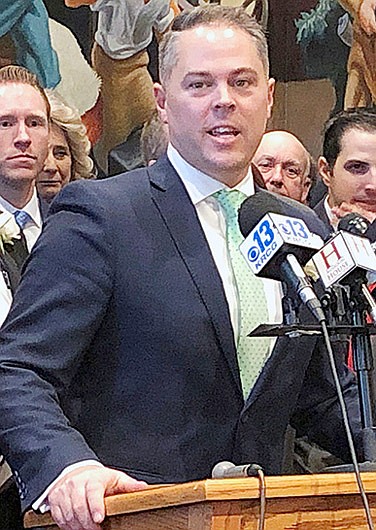Missouri's decrease in the Mo HealthNet caseload reflects improved accuracy for eligibility assessments, Missouri House Speaker Elijah Haahr said in a news release Monday afternoon.
MO HealthNet (the Missouri Medicaid program) provides health care and support for hundreds of thousands of people. However, the number of recipients has dropped dramatically since 2018.
Early this year, House Democrats called for legislative investigations into reductions of 120,000 cases. The number of people in the program shrank from about 970,000. According to medicaid.gov, as of May 19, the state had 852,161 residents enrolled in Medicaid and the Children's Health Insurance Program (the Medicaid program providing children's health insurance within MO HealthNet).
Haahr, a Republican from Springfield, said in a statement, "The decrease in caseloads is not a surprise to the department, especially now that the new renewal computer system has had a full year to complete the annual review process."
He said the drop was anticipated because 2016 changes to the Affordable Care Act (ACA) - specifically elimination of mandated health coverage - and an improved economy have lowered the numbers to a point where they were before ACA took effect. The same is true for the eligibility rolls for the "food stamps" program, Supplemental Nutrition Assistance Program (SNAP).
While Jay Nixon, a Democrat, was governor, the administration didn't robustly verify eligibility requirements every year for Missourians in the program, Haahr said. So, a large number of recipients were automatically re-enrolled, although they no longer qualified.
New software and a comprehensive review of each recipient are "performing a needed cleanup of those who are not eligible for Medicaid benefits," he said.
However, critics of the administration point out the new automated system does not use all the data available, as required by federal regulation.
They said it does not take into account data concerning SNAP benefits or Temporary Assistance for Needy Families.
Rep. Crystal Quade, D-Springfield, ranking minority leader of the Budget Committee, said the numbers don't add up. She said Republicans are pointing out that SNAP recipients and Medicaid recipients are decreasing equally, but her numbers show there was a 6 percent drop in SNAP and 12 percent in Medicaid.
"I'm going to continue to ask for public hearings on these issues," she said. "I agree that we both have a common goal folks who qualify for Medicaid coverage should have that coverage."
There should be a conversation that brings everybody to the table, Quade said.
"What better time to dig into what's going on, but also make this better?" she said.
Critics also questioned the methods for notifying people that are required to renew their benefits. In 2018, the state mailed out 102,550 annual renewals to recipients. Patrick Luebbering, director of the Family Support Division of Social Services, responding to inquiries from state Sen. Scott Sifton, D-Affton (St. Louis County) in February and March, said 43,200 failed to return requested information and 20,000 letters were returned as not deliverable.
Data from 2018 show 82,425 people lost coverage because of excessive income, Luebbering told Sifton.
Haahr said that in late spring, he asked Rep. David Wood, R-Versailles, to look into the drop in the number of children enrolled in MO HealthNet.
In June, more than 9,000 children were purged from the state's Medicaid rolls.
Information hasn't changed over the months, Wood said.
"We are still providing Medicaid to all the children that qualify for Medicaid in the state of Missouri," Wood told the News Tribune. "(The numbers are down) because of a combination of good economy, the new software program and people not returning paperwork."
Haahr said in Monday's news release that Wood - chairman of the Subcommittee on Appropriations-Health, Mental Health and Social Services - and MO HealthNet Director Todd Richardson updated him on the decline of children enrolled in Medicaid.
Richardson has been forthcoming about the failings of the call center that handles telephone re-determinations, Haahr said.
The average wait time over the final quarter of 2018 for people trying to reach the call center was 28 minutes, 43 seconds. The abandonment rate for calls was 47 percent.
"I have asked Director Richardson to do what he can," Haahr said in the statement, "or let me know how the General Assembly can expedite the transition to provide Missourians with tools that will make sure our children are not stuck on bureaucratic hold to receive basic medical care."
Lawmakers agree some issues still need to be addressed, Wood said.
"We agree our call center needs to improve," he said, "We need to simplify the process."

